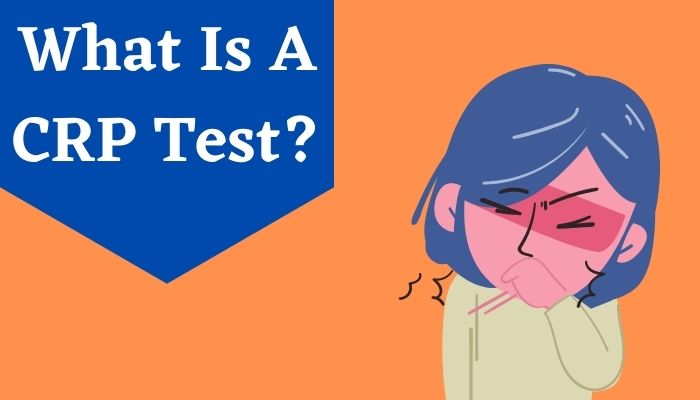A CRP test or C-reactive protein test assesses the level of C-reactive protein (CRP) in your bloodstream. Your liver produces CRP protein. Due to any inflammation of the body, the level of CRP increases. Inflammation is a way by which your body protects your tissues if you are injured or suffering from an infection. Several medical studies have proved that a CRP blood test is a better indicator of cardiovascular diseases rather than an LDL test.

This test is also recommended for people who are suffering from auto-immune diseases like lupus and rheumatoid arthritis. Autoimmune diseases may cause inflammation. Though the CRP test can’t determine where inflammation is in your body, this test indicates whether your anti-inflammatory medications are working or not. Generally, your C-reactive protein values are lower in your blood. If there is a serious inflammation, then the value will be elevated. A CRP test variation called high-sensitivity CRP is used to check for various cardiovascular diseases.
The cost of the CRP test is Rs.250 to Rs.400, depending on your location and place.
Please check the price of the CRP test in Delhi/NCR, your nearby centers and other details.
Test Summary of CRP Test
| Also known as | C-reactive protein, serum |
| Test Type | Blood |
| CRP test includes | To check for an inflammation |
| Preparation | You don’t need any special preparation for this test |
| Reporting | Within 24 hrs |
| Test price | The cost of the CRP test is Rs.250 to Rs.400, depending on your location and place. |
| Also included in | Health Insurance Plans |
| Related tests | Cholesterol test, triglyceride test, CBC |
Purpose of CRP Test
A C-reactive protein test is often recommended by a doctor to find or monitor conditions that are responsible for inflammation. These could be- Bacterial infections like sepsis (A severe and life-threatening condition)
- A fungal infection
- Inflammatory bowel disease (An inflammation, swelling, and bleeding in the intestines)
- An autoimmune disorder such as lupus or rheumatoid arthritis
- An infection of the bone called osteomyelitis
A hs-CRP test is beneficial for people who have a 10% to 20% chance of having a heart attack within the next 10 years or are at intermediate risk. Your doctor will evaluate your risk by assessing the scoring tests that comprise your lifestyle choices, family history and present health condition.
Preparation for CRP Test
If you are practicing strenuous exercises like weight lifting or intensive running, it will automatically uplift your CRP level. If you are performing these activities before the test, inform your doctor about the same.Sometimes, you may need to avoid eating or drinking for a certain period before the test. For example, if you performed a hs-CRP test to check for heart disease, your doctor may recommend a cholesterol test at the same time.
Some medications may impact your CRP level. If you are taking any over-the-counter medications or prescribed drugs, inform your doctor before doing the test.
Procedure of CRP Test
- After reaching the hospital or a diagnostic center, a technician or nurse will tie an elastic band to your upper arm. This will help you to identify the vein from which he will collect the sample.
- Then, he will insert a needle into your vein on the arm.
- Your collected blood sample will be stored in a collection tube.
- The needle and the elastic band will be removed and the technician will place a bandage or gauze at the puncture site.
Result for CRP Test
You will get the result on the same day or the next day.CRP is measured in milligrams per liter (mg/L). Standard CRP test results are usually given as follows:
Normal: Less than 10 mg/L
High: Equal to or greater than 10 mg/L
The result may vary from lab to lab. A high CRP test result indicates there is inflammation in the body. This could be due to an infection, injury or chronic disease. Your doctor will recommend other tests to check the result.
Results for a hs-CRP test are usually given as follows:
Lower risk of heart disease: hs-CRP level less than 2.0 mg/L
Higher risk of heart disease: hs-CRP level equal to or greater than 2.0 mg/L
If you are doing a CRP test for the risk assessment of coronary artery disease, then you need to perform the test two times (ideally taken two weeks apart).
If you have a high hs-CRP level, then you may not certainly develop heart disease. Your doctor will refer other tests to evaluate your risk.


